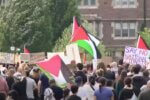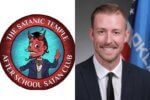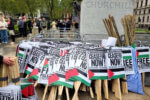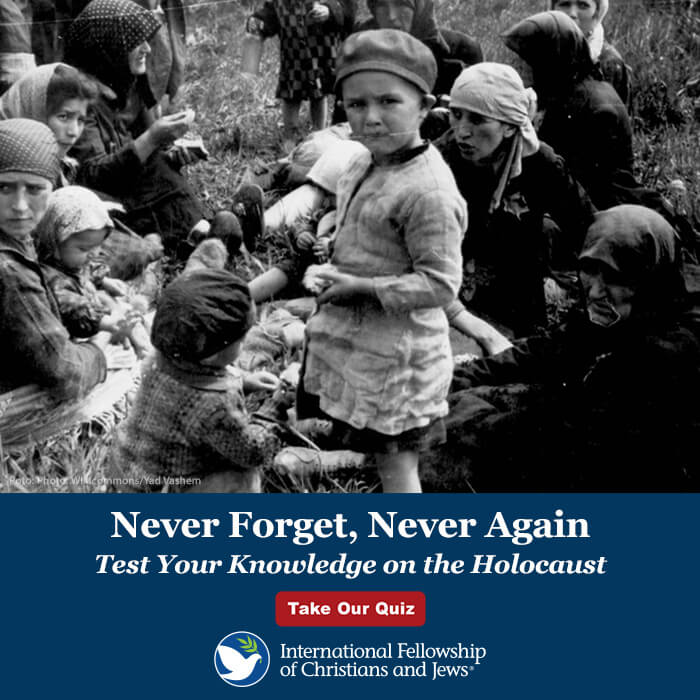Salim Munayer says Arab and Jewish believers in Israel are wasting a chance to model reconciliation to the world
As the ancient hatred between Arabs and Jews produces daily reports of gunfire, bomb attacks and deaths in Israel and Palestinian territories, nothing seems hopeful–or “new” in this new millennium. One Palestinian Christian, however, continues to sow the seeds of peace through Musalaha–a ministry that for 10 years has brought together Jews and Arabs who share belief in Jesus Christ.
Salim Munayer, 45, the director and founder of Musalaha, also serves as the academic dean at Bethlehem Bible College. The school is located near Rachel’s Tomb–the site of ongoing violent clashes between Palestinians and Israeli soldiers.
Abrupt gunfire on Bethlehem streets often interrupts classes at the college, and students often return to the school the next day–traumatized from the overnight clashes that sometimes leave their homes sprayed with stray bullets.
While the religions of Judaism and Islam slug it out for control of holy sites in Jerusalem and for territory across the Holy Land, Munayer’s ministry–based in Jerusalem–is uniting followers of Jesus to bridge the gap between two peoples who have viewed themselves as enemies for centuries.
Munayer, however, believes the crux of the modern conflict between Arab and Jew began 100 years ago with the Zionist movement to return the Holy Land to Jewish control, which occurred in 1948.
“We are in one ‘house,’ and there are two people [Arabs and Jews], ” Munayer told Charisma during a recent interview in
Jerusalem. “And we have no choice but to live together in peace.”
Munayer cited 1 John 4:20, which calls a liar anyone who says they love God but hates their brother or sister. He stressed that followers of Jesus the Messiah, no matter what ethnic background or nationality, are called by God to bring peace among enemies.
In Israel, believers have an incredible opportunity amid the ongoing violence to present Jesus as the one true Messiah. They can exemplify that Arabs and Jews who share faith in Jesus can overcome their hatred and prejudices and live together in a land where that seems impossible, he says.
Under Musalaha, Arab Christians and Messianic Jews have joined together for special trips into the Negev desert, the Sinai and other neutral places. They go for several days, share camping and survival duties, and learn how faith in Jesus enables them to respect one another’s races as peoples created by the same Creator.
Together they ride camels into the desert, cook, share water rations, exchange personal experiences and testimonies, and gradually break down the demonization and dehumanization each group has heaped on the other for generations.
“In the Bible, the desert is where the prophets go to meet with God. And it’s where we learn how dependent we are on our God,” Munayer explained. “The desert is where we learn the hard way that if we don’t get along, we won’t survive.”
After the desert excursion ends, the reconciliation continues in their hometowns. They trade special ministry tasks that bring Jews into Arab neighborhoods and Arabs into Jewish neighborhoods. And after a night of violence, Musalaha participants often call one another to see if their new friends are safe, Munayer said.
A Palestinian pastor and his family in Bet Jala, for example, were caught in the cross fire between Israeli and Palestinian gunmen. Several Jewish believers reached out to him and his church.
One Messianic family donated 15 baskets of food and supplies for Palestinian Christians, who often cannot leave their towns to go to jobs in Israeli-controlled areas because of the fighting. A Messianic congregation pledged to pray during their Saturday services for the Christians living in Bethlehem.
“I told my church this, and they were touched,” the Bet Jala pastor said. “We are carried by Christ and not politics.”
Munayer resents the demonization of Palestinians by Christians and Jews as the enemies of God. He believes that many people are misled into believing the Palestinians are a violent people because of the ongoing uprising.
“The majority of Palestinian Christians live in Bethlehem, and the area of Ramallah and Betz Shaour,” Munayer said. “Those towns are closed. People are not allowed to leave. They cannot go to work and are running out of money. I live in Jerusalem–I can shop and travel. But the people in Bethlehem cannot travel.”
Munayer, however, realizes that love and reconciliation–not violence–are required to bring peace and to lift the oppression Arabs and Jews have exchanged for years.
“It is harder to do peace than to go to war,” Munayer said. “We and the Israelis have learned how to make war. We need to learn to make peace. Jesus said, ‘Blessed are the peacemakers.’ It is really a big challenge.”







Leave a Comment
You must be logged in to post a comment.